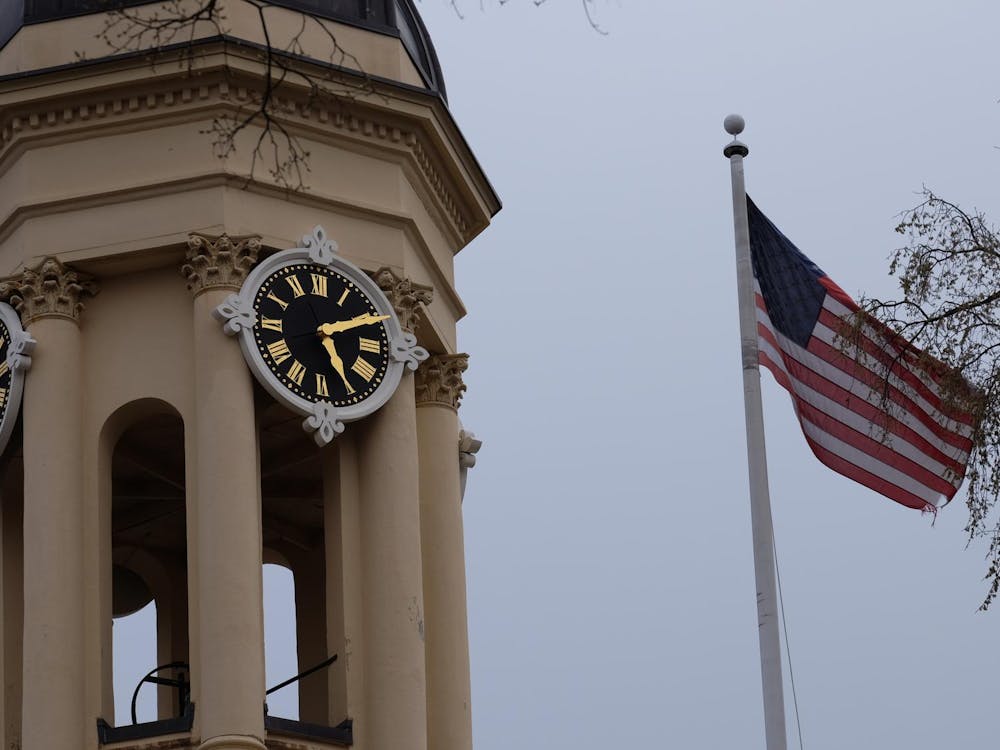My last class was quintessentially Princeton. It took place in a seminar room in the Classics Department (currently occupying an eating club-gone-dry) whose walls were lined with senior theses from the last hundred years or so. There were only five of us sitting around the table studying post-classical Greek literature: The professor, two seniors, a graduate student and a Princeton Theological Seminary student. "How do the authors relate to their classical past?" asked the professor. "Why has the language and style changed? How do they reconcile truth and fiction?" We tossed these questions back and forth, but at the end of the allotted fifty minutes they still hung in the air, unanswered. And then we left. As I wandered down the 'Street,' I had that feeling known to many a senior on the verge of becoming an alum: "That's it? I'm done?"
After four years, I am firmly convinced that Princeton offers the best undergraduate education in the country. (And I'm ready to passionately defend that wildly superlative statement.) Most of us can rattle off some of the most important factors: The professors, the small classes, the independent work, the facilities. I am still discovering some of the remarkable resources this university offers, from library reference tools to obscure sources of funding for summer projects. Princeton has been moving in a positive direction — the financial aid program and serious alternatives to the 'Street,' for example — and overall the administration has responded to student complaints. Just last week they announced that, at a great financial cost, construction would start later during reading period and exams so we could sleep more. It's almost embarrassing.
Interaction with fellow students also contributes to the educational experience, but I must admit that I've read many books and written hundreds of pages and still don't understand Princeton students. Smashing lampposts with your head still strikes me as barbaric and drinking twenty-four beers in a day continues to seem downright idiotic. The students who chronically fall asleep in class or have never been to the Art Museum or think English is a waste (yes, I've actually heard engineers say that) will always frustrate me, to put it mildly. But then there are the many discussions, insightful arguments and good laughs — and those moments when you suddenly realize that the thug in your precept is a whole lot more intelligent, perceptive and interesting than you are. You just never know.
No two Princeton experiences are the same, and that is part of its beauty. For a relatively small school, it is bursting with opportunities. College guides shouldn't try to fit Princeton into a label, because none apply. Anti-intellectualism, lack of diversity, the Street, blah blah blah, I'm tired of all the complaints. Anyone can find their niche here.
All, of course, is not rosy. I'm sure each student has his or her own list of what areas the University should improve, and this column does not offer enough space for me to rattle off mine. But I would like to mention one item: I think it is time that Princeton considered a Cultural Studies requirement. How is the University, as a leader of an increasingly global community, preparing its undergraduates for the "real world"? I don't advocate any new courses, but cross listings: Courses on Japanese economics, South American politics or African history could all fulfill the requirement (and an SA or HA at the same time). This is not an original idea, and judging from discussions I've heard over the last few weeks, I hope it becomes more of an issue next year.
In closing, and with graduation looming, I would like to leave the seniors with a warning. Over the next few weeks, parents, friends, and the administrative elite will tell us that we are the best ever. We're not. Through the fireworks, champagne, parades, praise and festive future of alumnus life, guard against the Princeton Audacity. As an attitude of slightly insane arrogance it can be dangerous, leading to a highly obnoxious and self-defeating feeling of entitlement which we do not merit. But as a sense of daring and courage it can be a good thing, leading you to take a risk, to try something new, to change the world. Nathan Arrington is an art and archaeology major from Westport, Conn. He can be reached at arington@princeton.edu.







